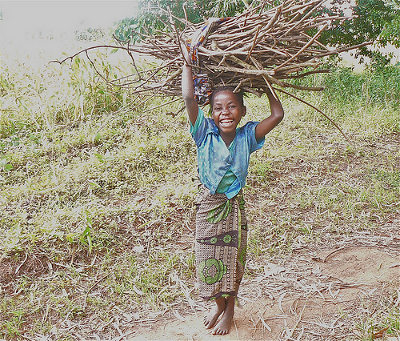The Land of Both Poverty and Peace
Malawi — It is often referred to as the “Warm Heart of Africa”. It is the home of a number of tribal groups. Generally they are scattered throughout the country by regions. The North, Central and Southern regions are distinctively divided by these political and historical backgrounds. Generally there is a demarcation of the main cultural tribes by the three geographical regions. The Tumbuka and Ngoni tribes with the Tonga tribe coming in smaller numbers dominate the northern region. The Chewa tribe is the largest and they live primarily in the central Malawi. The southern region is highly populated by the Yao and Lomwe tribes. However, this does not confine one to its tribe by region or district. Each region and district of the country has patches of people from other tribes living in harmony and unlimited peace. No wonder this is called the Warm Heart of Africa. Inter tribal marriages are not prohibited, and this further enhances the bonds of unity throughout the nation.
Built on four cornerstone principles by the father and founder of the nation, the late Hastings Kamuzu Banda, these principles are unity, peace, freedom and discipline. Although these principles are sometimes forgotten they still help to mold the nation in a friendly place both regionally and globally.
Although this nearly 50-year-old democratic nation still falls near the bottom of the world’s economic rankings, and the poverty level remains near the top, the strides towards a brighter Malawi are still being jointly fought by all Malawians. It is a country plagued with poverty, and few people can afford basic necessities. The lucky children may find a tablet of soap with which to wash their clothes. The unlucky ones must do without. Both are forced to walk many kilometers on rocky ground just to gather food, find firewood, and collect water. School classrooms are inadequate; and many children still access education studying under trees. The literacy rate is said to be at 62.7% of the population over 15 years and old.
Fifty-Three Percent Below the Line
The basic water sources remain unprotected shallow wells that supply the largest part of the population. Potable water is even inaccessible by many urban dwellers. Water taps are dry for the greater part of the year. Water authorities still depend on old malfunctioning equipment, when the precious commodity can be accessed at all. Despite the fact that 53% of the population lives below the poverty line the country’s inhabitants remain friendly and warm.

I Met a New Friend
This afternoon, I have made a new friend. Her name is Doricca Somanje. She is a Nyanja by tribe and hails from Mtuweni Village in Zomba. At her age, she might have collected dozens of kilograms of firewood for her family’s use. I asked for permission if I could take her friendly and beautiful face for the purposes of my article. She agreed, but with one condition, “Mutakachapisa mudzandipaseko changa” (After printing, please give me a copy of the photo).
One thing I observed from this little girl is that, without anything except freedom and peace of mind, a person is actually whole. I am not however, concluding that without the basic necessities, one is satisfied, but I have grown to realize that peace and freedom are fundamental properties for any human being, whether they are rich or poor. Despite the fact that she has almost nothing, Dorica still manages a smile that reveals the country’s warmth. Her daily life depends on firewood as a source of fuel. To her and other villagers electricity is not an alternative at all.
Such a Warm Smile
It is such wide smiles that Malawians are blessed with that make the country home to everyone. If one has not visited Malawi, one must be living in an incomplete ‘world’. This is the warm heart of Africa — the nation known for her poverty as well as being a nation of friendly people.
Physical features are enormous in this centrally located African nation. Mountains, hills, rivers, lakes, animals, national parks, all are in large numbers. This is the nation that houses the great African rift valley lake, Lake Malawi, the great Mulanje Mountain, and several attractive destinations that are patiently waiting to be visited. But above all of them, the thing you may take home with you above all else are the smiles of the people.
By Wilson Tembo, Manager Malawi Project Warehouse Thondwe, Malawi
